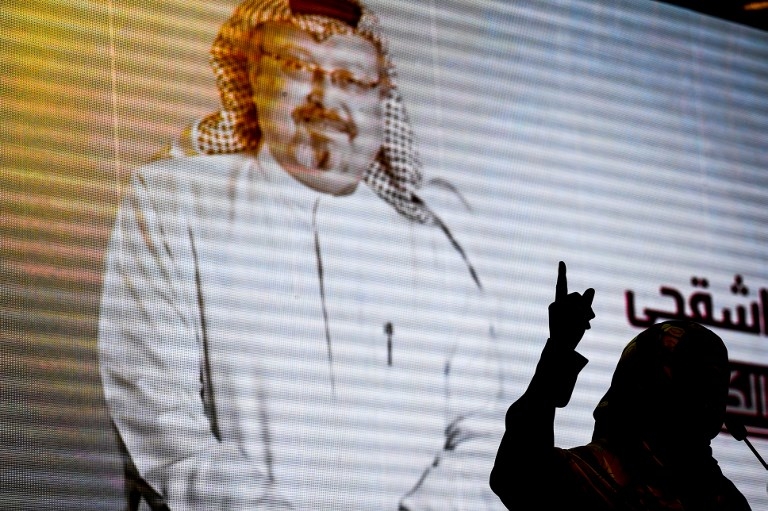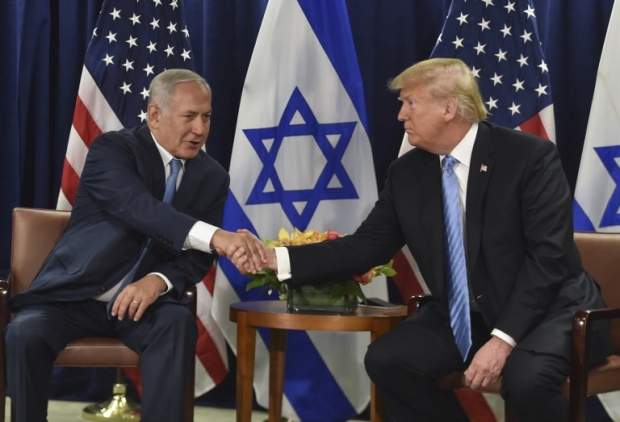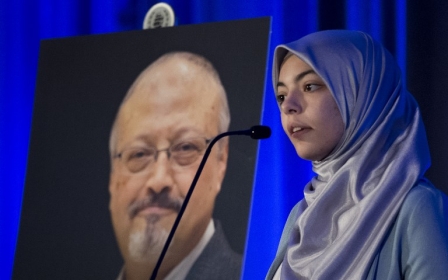Khashoggi case highlights the value of strategic restraint

Debate continues over the possible geopolitical consequences of the murder of Saudi journalist Jamal Khashoggi, including the possibility that it has impacted the US-Israeli-Saudi strategy to counter Iran.
After Khashoggi's murder early last month, it is difficult to go on with business as usual. A review of the anti-Iran alliance's strategy appears inevitable, particularly when it comes to the eligibility of Saudi Crown Prince Mohammed bin Salman (MBS) to continue serving as its cornerstone.
The House of Saud is in damage-control mode, but it is still too early to say whether the suprising return of Prince Ahmad bin Adbulaziz to Riyadh from London at the end of October will produce any change in the succession line. Prince Ahmad is the younger brother of King Salman and a son of the country's founder.
Strategy to shift attention
So far, the US has been cautious, sending mixed and contradicting signals: Washington initially delayed any reaction to the Saudi journalist's murder, then more recently it stopped the air-refuelling of Saudi jets operating in Yemen against rebel Houthis seen as close to Iran.
Meanwhile, US National Security Adviser John Bolton has maintained that the tape of the Khashoggi killing does not implicate MBS, while the CIA was reported on Friday to have concluded that the crown prince had ordered the killing.
US President Donald Trump said the US will soon have a final conclusion to offer on the killing.
The US Treasury had earlier sanctioned 17 Saudi officials said to be related to the murder, fuelling the suspicion that Washington could give a pass to a possible Saudi scapegoating on the issue that would spare MBS.
However, a strategy to shift international attention from what happened inside the Saudi consulate in Istanbul on 2 October still seems necessary. According to some sources, the increased tension in Gaza in the last few days could have been a possible attempt to achieve this diversion.
Other, more worrying possibilities, could be a deliberate military provocation or a high-value targeted killing in the region, any one of which could ignite a new conflict and potentially leave the Khashoggi episode forgotten.
Other, more worrying possibilities, could be a deliberate military provocation or a high-value targeted killing in the region, any one of which could ignite a new conflict and potentially leave the Khashoggi episode forgotten
Although some Arab countries are considering reopening their embassies in Damascus, Syria remains one of the possible terrains for a provocation aimed at an escalation.
No other military theatre offers such an incendiary mixture for whoever should be deliberately looking for a new casus belli considering the large number of foreign troops, air forces and militias operating in the country on opposite sides.
The downing of a Russian plane over Syria in September was an episode that has also demonstrated that reckless actions are not limited to Saudi Arabia.
The plane was brought down by a Syrian anti-aircraft missile off the coast of the Latakia governorate on 17 September in response to an Israeli raid on Syrian targets.
Israel effectively used the plane as a cover during the attack, according to Moscow.
Russia (together with Iran and Hezbollah) has so far shown strategic restraint towards Israeli raids in Syria, but the September incident could be a watershed.
Israel's sustained political commitment to Russia - Prime Minister Benjamin Netanyahu has visited Moscow more frequently than Washington in recent years - has allowed Israeli jets to operate over Syria, but this could now be compromised.
What are Israel's marching orders?
The downing of the Russian plane pushed Moscow to go along with the long-postponed delivery of the S-300 air defence missile system to Syria.
Common sense would suggest that Israel would now evaluate carefully before launching any new air strikes in Syria. Well, don't count on that if its marching orders are to escape the Khashoggi crisis through a deliberate provocation.
Israel is the country that has invested more than anyone else in the Pax Americana based on a change of regime in Iran and on the "deal of the century" to close the Palestinian issue.
Netanyahu has been the most vocal leader in emphasising the necessity to give a pass to MBS in the name of the more important necessity of preserving the stability of Saudi Arabia. This "stability" means essentially maintaining Riyadh's engagement in isolating Iran and in imposing the "deal of the century" on the Palestinians and other recalcitrant Arab countries.
In this case, the Israeli premier could be pushed to restore his "security credentials" to take away extreme-right votes from Lieberman and Education Minister Naftali Bennett; otherwise, if Bennett replaces Lieberman to allow the current government to survive, Israel will be even less restrained.
Only the joint will of the US and the Israeli high military command - where some measure of common sense still lingers – could avoid the worst. It is also not fortuitous that all signs point to the possible resignation of US Defence Secretary James Mattis, with Bolton and his inner circle rumoured to be the puppeteers of this potential development.
If during a new raid in Syria, an Israeli jet were to be downed by the S-300 missiles, Israel could retaliate, forcing Russia to counter-retaliate - and Washington could join the confrontation.
Following a well-rehearsed matrix, US, European and Israeli mainstream media and networks would devote rivers of ink and images to the new Russian "provocation," and the Khashoggi affair would disappear, but nobody is sure at what cost.
The role of Tehran
The second alternative could be the physical elimination of a major regional actor, such as the head of Iran’s Revolutionary Guard Corps, which would trigger a severe reaction and global escalation.
Of course, the "axis of resistance" could also contemplate provocations, especially with tough new US sanctions against Iran.
Can Tehran endure at least two more years of Trump-driven, brutal sanctions? Someone in the composite Iranian leadership could believe that it would have nothing to lose from an asymmetrical retaliation in one of the many regional theatres where the US and Iran, and their respective allies, are confronting each other.
Iran and its proxies have the networks, capabilities and experience to do it, but this would be a massive mistake.
Iranian leaders have been eagerly watching the Khashoggi fallout. Any attempt to profit from the situation, or any deliberate provocation against the so-called Arab Nato, would be foolish and counterproductive for Iran and its partners, helping their foes to escape the corner that MBS has backed them into.
Sometimes, the value of strategic restraint is priceless.
- Marco Carnelos is a former Italian diplomat. He has been assigned to Somalia, Australia and the United Nations. He has served in the foreign policy staff of three Italian prime ministers between 1995 and 2011. More recently he has been Middle East Peace Process Coordinator Special Envoy for Syria for the Italian government and, until November 2017, ambassador of Italy to Iraq.
The views expressed in this article belong to the author and do not necessarily reflect the editorial policy of Middle East Eye.
Photo: A digital image of Jamal Khashoggi is seen during a commemoration event in Istanbul, Turkey, on 11 November 2018 (AFP)
New MEE newsletter: Jerusalem Dispatch
Sign up to get the latest insights and analysis on Israel-Palestine, alongside Turkey Unpacked and other MEE newsletters
Middle East Eye delivers independent and unrivalled coverage and analysis of the Middle East, North Africa and beyond. To learn more about republishing this content and the associated fees, please fill out this form. More about MEE can be found here.






